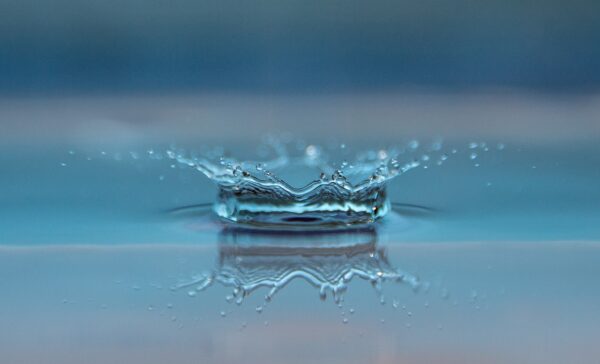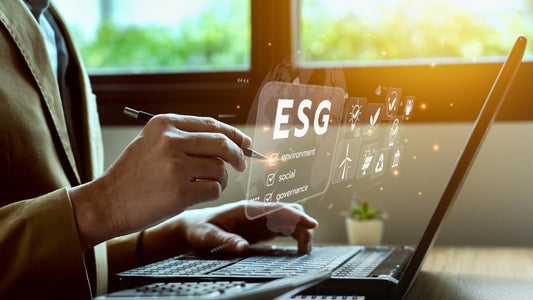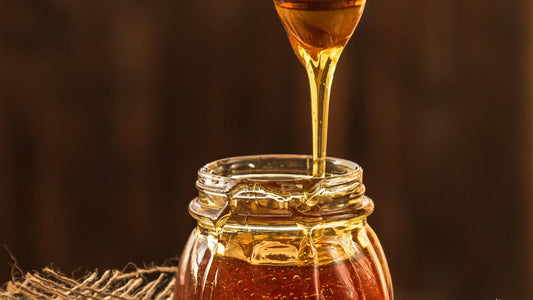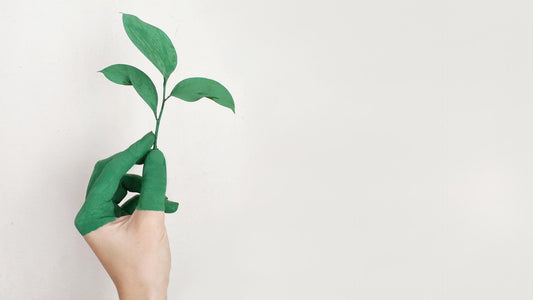
LEVERAGING PROSPERITY and PEACE with WORLD WATER DAY
Share
Green Cloud Nine celebrates World Water Day 2024
Water is the essential resource for the survival of life covering 70% of Earth’s surface. All living beings require water to survive. And we humans are not an exception. You must know that the human body cannot function perfectly without water after three days. Water nourishes hydrates and ensures a healthier life. Water ensures a peaceful and prosperous life and communities, acting as the fundamental entity for the health and well-being of people and ecosystems.

What is World Water Day?
World Water Day was initiated by the United Nations in 1993 and has been celebrated on 22nd March ever since, to raise awareness about the importance of freshwater and its resources.
But how did it become important for peace?
Water is the most precious commodity that exists, and when used correctly it promotes economic growth, social equity and sustainability. Thus, it becomes a powerful tool to spread peace and bonding among nations. It is a shared resource that does not understand political boundaries but is so important that many dare to foresee that a third world war could be caused either by a water crisis or a nuclear disaster.
The world politics can benefit from water, this is why this year’s theme for World Water Day is ‘Leveraging Water for Peace’. In case you did not know, the world’s 60% freshwater flows across political boundaries. Still, only 24 out of the 153 countries share their transboundary waters with other countries.
The Water Convention
The Convention on the Protection and Use of Transboundary Watercourses and International Lakes simply called The Water Convention is an international legal document which ensures the sustainable use of transboundary water resources. It is essentially meant to foster cooperation among nations, prevent conflicts over transboundary water, promote sound water management and protection.
It applies to all UN Member States from 2016. The Protocol on Water and Health provides a practical framework to apply human rights to water and sanitation and to implement SDG 6 successfully.
The Water-Energy-Food Nexus

Energy, water and food are deeply interweaved resources of webs and processes forming a nexus of sustainability. Water is essential for energy, survival and agriculture. We need energy for the treatment of water and food processing. To produce food, we need both energy and water.
Thus, these 3 are the most essential resources which we need to utilise sustainably. With the growing population, the demand for food, energy and water has constantly increased and will continue to do so. To give you an idea, these are some projections estimated by the United Nations:
- 72% of all freshwater is utilised by agriculture, 16% by industries and 12% by municipalities.
- Global water demand is projected to increase by 20-30% by 2050.
- Global food production would need an increment of 50% to feed more than 9 billion people by 2050.
- Water utilization for energy production and consumption could rise by 20% and 85% respectively by 2035. This would be due to the shift towards efficient power plants with advanced cooling systems and increased biofuel production.
Conflict Arising from Water Scarcity
With growing demands for food and water, we are already witnessing conflicts locally and between counties where resources become limited.
Water Scarcity can lead to violence and tension between groups and nations. Around 30% of Europe’s population is affected by water stress during an average year. The situation gets worse because of climate change and results in more impactful and frequent droughts.
For example, in 2023, France witnessed intense conflicts over proposed water reservoir projects. In Spain, WWF confirmed in a study that although meteorological droughts have always existed, they are becoming more extreme and more frequent and that water scarcity is not only due to a lack of rainfall. Political tensions are frequent due to the water topic.

That is why promoting sustainable use and equal and abundant distribution of water resources is essential for preventing conflicts. The UN has been working with its member nations to build trust and reduce tensions, so that major conflicts can be prevented. The success of these policies can ideally result in reduced issues related to water and would foster peace and stability.
Water Day for Prosperity and Thriving
Water is not only an essential resource but also an important tool for growth and success. By staying at the centre of economic and social growth, it empowers and develops, building new paths for prosperity. It nurtures the soil, organisms and humans and grows plants. Industries need water to run, and so do the communities. Investing in water-saving initiatives leads to significant economic benefits, decreased costs of operating, increased consumer satisfaction and enhanced growth and reputation.

For example
- Microsoft reused water which helped in improving the local groundwater supply in Washington.
- A Native American Community in a city in Kansas used a lagoon system to treat wastewater for golf course irrigation (low-input technology).
Nowadays, many businesses aim to integrate water sustainability to contribute to the well-being of the environment. This positive behaviour has a nice side effect: it creates a loyal and trusting group of customers who believe in the companies’ values, products and services.
An example of Water Management for World Peace
Water diplomacy plays a critical role in solving conflicts and establishing peace to foster prosperity. It is essential for a sustainable, peaceful and inclusive water management system.
The Nile Basin Initiative was a well-known diplomatic agreement between countries that helped establish peace through water. It brought together countries such as Egypt, Sudan and Ethiopia to collaborate in managing the Nile river waters. This helped prevent further tensions and conflicts which might have escalated due to the scarcity of water resources. This agreement was more than just an efficient water management system, it also ensured prosperity, peace and security for all the inhabitants of the affected countries.
You may also read the UN Water Action Decade and World Water Council to know more about how water plays an important role in fostering peace, resilience and prosperity among communities and nations worldwide.
Adopting Innovative Water Management Technologies and Practices

Today, efficient water management is a critical issue that communities and businesses face. Decentralized water systems, smart water meters and advanced water monitoring techniques offer partial solutions.
But we need a globalized effort and regional collaboration to get a long-term and efficient solution in place. Modern technologies such as Artificial Intelligence, IoT sensors and advanced meters ensure water quality and quantity control with remote management.
With climate change affecting everyone, floods and droughts have become more common. The latest forecasting and flood modelling systems have made it easier to know when a flood might arrive. Various flood-prone areas are implementing effective and better-built water gates, dams, and blocks to respond quickly to the disaster. These minimize the damage post-disaster. Drone and satellite-based mapping can further support here. If you are interested in these innovative solutions click here.
Steps for Promoting Water Sustainability on World Water Day
Water where the life began and which is the ultimate necessity of life on Earth even today needs no clarification on its importance. By efficiently harnessing its potential and adopting diplomatic techniques, nations can efficiently use it while still maintaining peace and prosperity in the world.
You may also read the UN Water Action Decade and World Water Council to get to know more about how water plays an important role in fostering peace, resilience and prosperity among communities and nations worldwide.
Can You Help Promoting Water Sustainability?
By efficiently harnessing water potential and adopting diplomatic techniques, nations can efficiently use this resource while maintaining peace and prosperity in the world.

But this is not just an issue for governments and global organisations, we, as individuals can do much to promote water sustainability. Let’s see how:
- Preserve water. For example, turn that tap off while washing your hands and brushing.
- Try Reverse Osmosis systems to purify your water and use it for washing dishes or irrigating the garden.
- Use hydroponic systems to grow your herbs and vegetables. Smart growing systems require little water and avoid waste.
- Use a bucket to collect water in your shower while it warms up. Use it to clean or water your plants.
- Plant native crops and trees on your terrace and garden. They generally require less water as they are adapted to your climate.
- Install a water-saving flush system or put a 2-litre plastic bottle in your toilet water tank to optimise the water in each flush.
- Encourage and adopt rainwater harvesting systems.
- Educate people in your surroundings about how they can reduce their water usage.
- Run only full loads in your washing machine and dishwasher .
- Get that leaking tap repaired.
- Do not throw toxic substances or items in the toilet that may contaminate water.
- Reuse grey water in the garden, if allowed by your municipality.
- Adopt drip irrigation in your garden and reuse water as much as possible.
These Are Our Favourite Water Friendly Products
Transform your home into a tech-savvy oasis with a water-saving innovative smart garden that minimises consumption maintenance tasks. This transformative hydroponic system is available in different models and features adaptable designs and a wall mount for space-saving vertical gardening. With this product, you will save plenty of water and a lot of time as well.
This Attitude baby wash kit is a superhero in the world of sustainable living and homesteading. These products are plastic-free, vegan, cruelty-free and use natural fragrances. They are the best baby wash products you can find for your new bundle of joy, perfect for new parents.

To efficiently maintain the quality of water, it is essential to use washing products that are not harsh for the environment. Innovative solutions like wash balls are a game-changer for regular washing machines, offering a sustainable and skin-friendly alternative to traditional laundry detergents.

Last but not least, you have surely heard that washing your synthetic clothes often releases tiny plastic particles into the water, harming the environment. That is why we wanted to recommend that if you have many fibre clothes, grab this Guppy Friend washbag, an innovative bag, that catches these microplastic fibres, preventing them from entering our water systems and thus protecting our planet. Not only that, it also helps our clothes last longer by reducing fibre loss. you may purchase this water-friendly product here.
Hopefully, our tips and information inspire you to make some small changes in your lifestyle that will benefit the whole planet. Have a great World Water Day! 🌊







